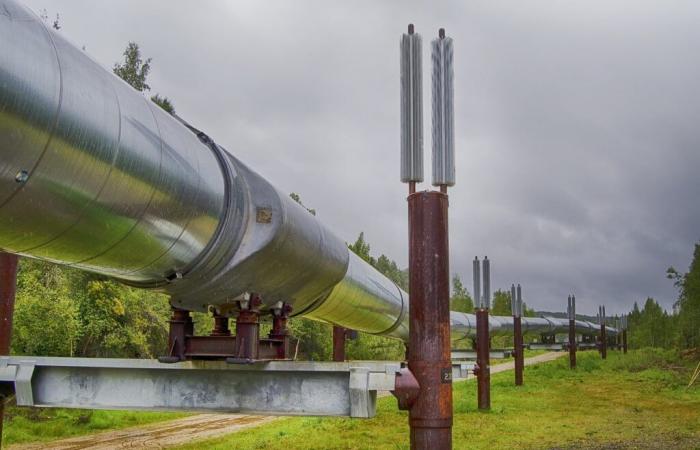kyiv terminates a key contract with Gazprom, sparking concerns and tensions in several Eastern European countries. Moldova is sinking into an energy crisis, while Slovakia threatens retaliation.
A strategic decision by kyiv
Since January 1, the transit of Russian gas via Ukraine has become a thing of the past. The end of a contract signed in 2019 between Naftogaz and Gazprom has been recorded, stopping deliveries via this historic route. A decision taken by Ukrainian President Volodymyr Zelensky, who intends to reduce European dependence on Moscow.
This gas pipeline represented up to a third of Russian exports to Europe. Now the remaining flows transit via TurkStream, under the Black Sea, or by cargoes of liquefied natural gas (LNG). This rupture takes place in a context of heightened tensions between Ukraine and Russia, to the detriment of Eastern European countries still heavily dependent on these supplies.
The European Union, for its part, puts the impact of this decision into perspective, citing adequate preparation and alternative infrastructures to absorb the shock. The 14 billion m³ annually transiting through Ukraine represents only 5% of the continent's total gas imports.
An energy and political turning point
In Moldova, the consequences are already palpable. Dependent on Russian gas for 70% of its electricity, this former Soviet republic declared a state of emergency after the failure of negotiations with Gazprom. In Chisinau, the mood is gloomy: President Maia Sandu accuses Moscow of using “ energy blackmail to weaken our European trajectory ».
For its part, Slovakia, led by Robert Fico, denounces a “ irrational decision » from Ukraine. Bratislava, financially affected, threatened to stop electricity deliveries to kyiv, a hard blow for a country whose energy infrastructure is targeted by Russian bombings.
-This new configuration illustrates the complexity of energy and geopolitical relations in the region. Vladimir Putin, according to experts, is pursuing a strategy of “undermining work” to divide European countries. Moldova, in an energy crisis, plans to buy electricity from Romania, while Slovakia is moving closer to the Kremlin.
For Europe, the challenge is twofold: maintaining its solidarity with Ukraine while managing tensions between its members. In the medium term, the diversification of energy sources remains a crucial priority to prevent disputes over gas from compromising its unity.
A reaction? Leave a comment
Did you like this article? Subscribe to our free Newsletter for engaging articles, exclusive content and the latest news.






